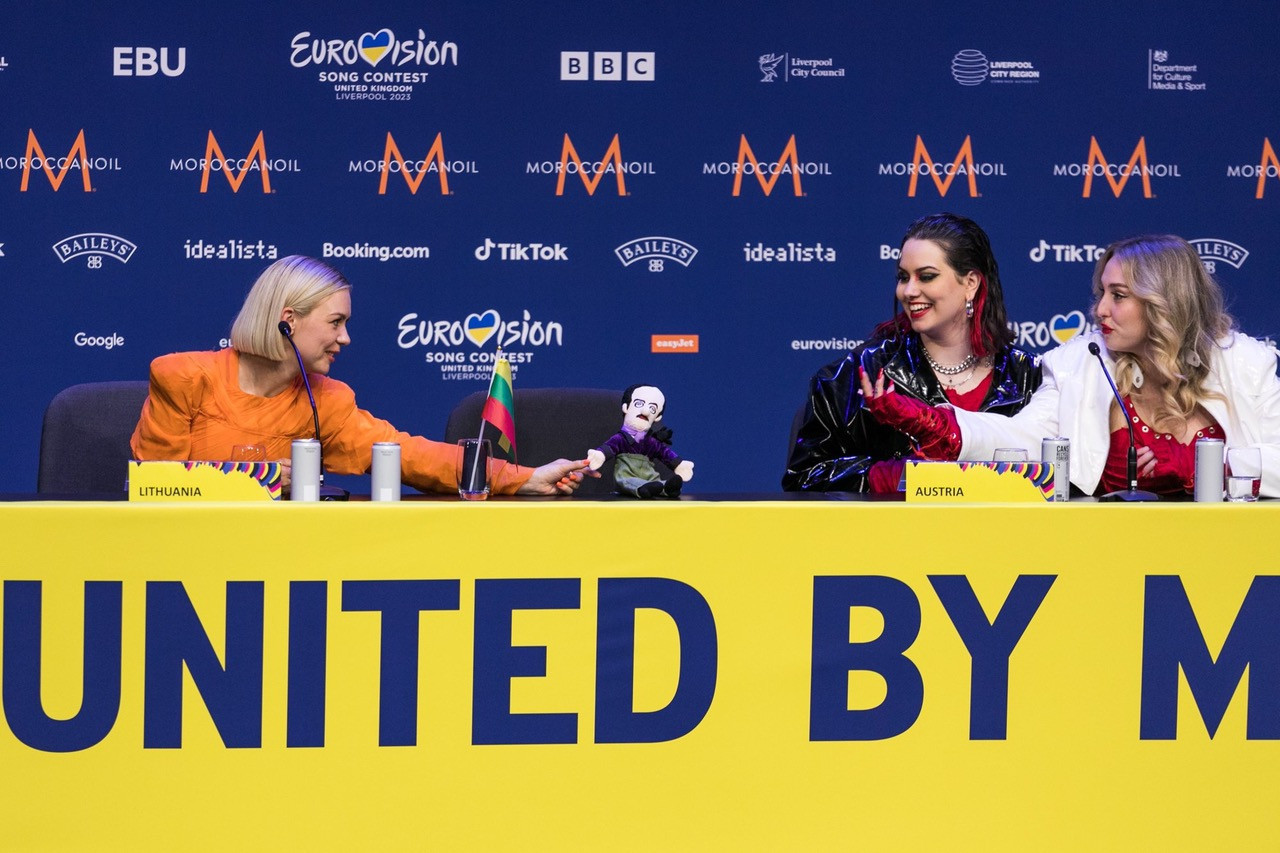The bookmakers got nearly all the qualifiers of the second semi-final right on Thursday evening, and though there were evidently disappointments, there were no ‘big’ surprises. Austria and Belgium--which, based on audience reaction in the arena, are clearly among the popular entries--logically qualified.
Likewise, the band Joker Out sent Slovenia to the final for the first time in two years. Seeing their fan following, this was also not unexpected. Already a successful group in their home country, their Eurovision adventure has given them a much-deserved spotlight… and 250,000 new followers on Instagram since coming to Liverpool from what they revealed at the press conference after the semi-final.
Also qualified for the final were Armenia, Australia, Cyprus, Estonia, Lithuania, Poland and Albania--the only country the bookmakers were, quite understandably, not expecting to qualify. The song, performed by a family act (lead singer Albina and her parents and three siblings), talks about how bad it is to divorce--not necessarily typical Eurovision material.
Six countries did not make it through. Denmark had a terrible evening, not reaching the final for the third year in a row. Not only did their representant, Reiley--incidentally also the very first artist from Faroe Islands to compete in Eurovision--not qualify, but the Greek contestant, Victor Vernicos Jørgensen, who if half Danish, didn’t either. And to add salt to the wound, the Icelandic singer, Diljá, who has done much of her singing training in Denmark, also didn’t qualify. The three other countries to get sent home were Georgia, Romania and San Marino.
Running order revealed
As often discussed, the running order in Eurovision can have an effect on the results. The revealing of it--which can only be done once the semi-finals are over and all finalist countries are known--therefore always sparks discussions and new predictions. This year was no different.
The running order is half fate, half ‘chemistry’. The contestants draw halves at random (first half or second half of the contest), and the Eurovision producers decide the exact spot they are allocated, placing the songs in each half in a way they think will make the best show.
Austria was allocated the opening spot of this 2023 edition of Eurovision, which is rarely something to rejoice about. Even worse was the second position given to Portugal. The “curse of number two” is something of a phenomenon in the Eurovision Song Contest. No country performing in second place of the final has ever won (but has, on the contrary, very often, finished last).
The first half of the final seems pretty advantageous for one of this years’ absolute favourites Finland (13th spot), while France, sandwiched between two countries that are not expected to do well, can also consider itself lucky. Other top favourites Spain and Sweden, on the other hand, will be performing one after the other, which could be bad news for both.
As for the second half of the final, Norway, Germany, Israel, Slovenia and Croatia have all been placed in what can be considered advantageous spots, while both Czechia and Estonia have definitely not. Belgium could also have hoped for a better place in the running order.
But much like football, the Eurovision song contest is not an exact science, and a lot can happen when votes are cast on Saturday. For now though, as executive supervisor Martin Österdahl said, the final is “good to go”.




